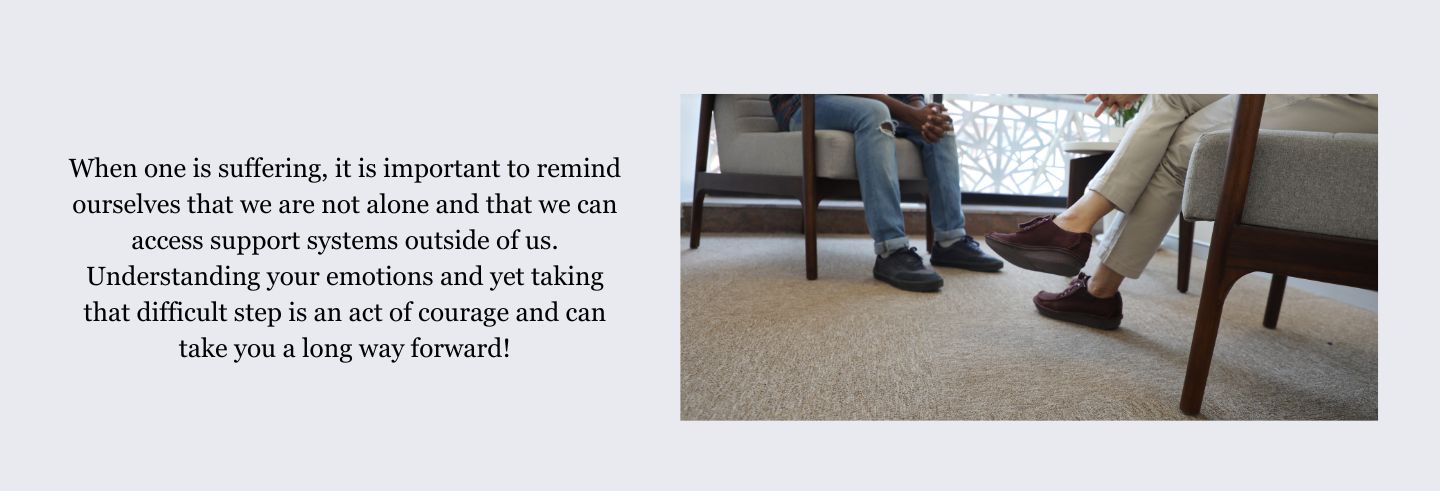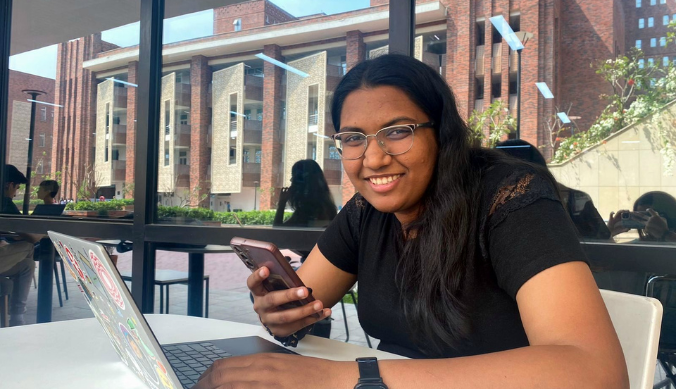Overcoming Barriers to Seeking Help
In a culture where being independent and self-sufficient is valued, where focus is on individuality and resilience, it’s only natural that we want to “deal with things ourselves”. But we forget that we don’t “have to” do it all by ourselves
The act of seeking help in theory sounds easy: you face a difficulty, you ask for help, and you work through the problem. Simple, right? Not really. We all know through experience how difficult asking for help can be in action. We always find something that can hold us back, “I should be able to handle this myself”, “They will think I am weak”, “I see my friends don’t need any help, why do I need it”, “There must be something wrong with me because I am having to ask for help”.
Thoughts like these create a barrier between us and the outside world making it difficult reaching out for support when we need it the most. We may feel ashamed for asking for help, it may feel as if we are a burden on others and we feel pressured to deal with things alone.
In a culture where being independent and self-sufficient is valued, where focus is on individuality and resilience, it’s only natural that we want to “deal with things ourselves”. It is also empowering to encounter a difficulty and find solutions to it. It indeed adds value to our sense of self, but in these moments, sometimes we forget that we don’t “have to” do it by ourselves.
Some factors that may hold us back from seeking help:

Denial
Sometimes even when we experience clear signs of struggle, it may be difficult to recognise and acknowledge that there is a problem

Fear of failure or not being good enough
At times, even when there is an awareness about our difficulties, it’s very scary to express to others that one is struggling. We may fear that it will be seen as a sign of weakness or failure

Shame and Stigma
Embarrassment about our difficulties and the pressure to be competent particularly in cultures which stigmatise mental health issues may make it extremely hard to ask for support from people around us

Hopelessness
In the throes of our difficulties, it may seem that nothing anyone ever does will be able to get one out of the problems one is facing. Asking for support may seem fruitless and exhausting

Difficulty in getting started
Not getting the help one wished for or facing disappointment in the past may make it hard to take the risk of reaching out to another. Our mind and body can become resistant to depending on others in order to protect ourselves from difficult emotions.
When one is suffering, it is important to remind ourselves that we are not alone and that we can access support systems outside of us. However daunting reaching out to others may be, seeking help is the first step towards getting and staying well. It is also important to recognise that what may work for one may not work for another, and one may find some support systems more suitable for than others. It might need some trial and error to figure out what works for you and that’s okay!
Following are some ways that may help you seeking help:

Accept that you might be struggling and that it is okay to seek help from others. You are not a failure if you are not able to deal with things yourself neither a burden to those who might be able to help you.

Recognise and admit what is becoming a barrier in your path towards seeking help. It might be some of the things listed above or it might be something else. Acknowledging what is preventing you from reaching out can be beneficial in taking that first step towards seeking help.

Be aware of the emotions you feel when asking for help. Fear of rejection, shame for being vulnerable, anger and disappointment towards others and even envy towards those who can help you are absolutely normal feelings to have when seeking help.

Take the risk of trying out what works for you. As mentioned earlier, it may take some trial and error to work out your support system, but it can be very empowering once you get there.
Understanding your emotions and yet taking that difficult step is an act of courage and can take you a long way forward. Remember, you can reach out to anyone you feel safe and comfortable with for seeking help and support. It can be in the form of talking to your peers, sharing your difficulties with your family, finding support in your community, reaching out to an entrusted professor/mentor or working with a professional who can help you figure things out.
Compiled by Team ACWB












